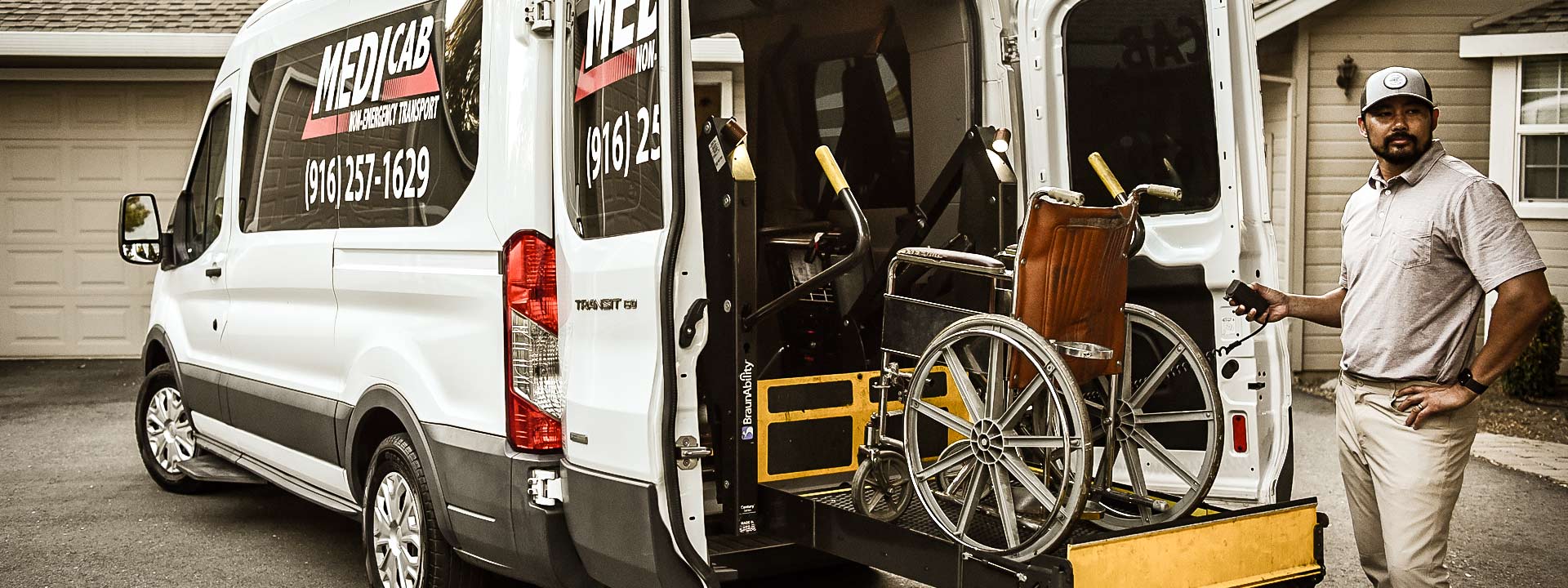Accessible and Affordable Medical Transport Options for Seamless Health Assistance
In the realm of medical care, the ease of access and cost of clinical transportation are critical in ensuring people can access the treatment they require when they require it. From non-emergency medical transportation services to ingenious options like telehealth, the landscape of clinical transport is progressing to fulfill the varied demands of patients.
Non-Emergency Medical Transportation Services

These solutions are staffed by experienced specialists that focus on patient comfort and safety during transit. Chauffeurs are geared up to manage individuals with varying medical requirements and guarantee that all journeys are smooth and trouble-free - Medical Transportation Services Near Me. In addition, non-emergency clinical transportation services typically use specific cars that are wheelchair-accessible, making them suitable for a wide variety of patients with various flexibility needs
Volunteer Motorist Programs
Volunteer chauffeur programs are critical in giving transport help for individuals seeking non-urgent healthcare. These programs depend on the generosity of volunteers that contribute their time and automobiles to assist transport people to and from clinical appointments. By utilizing volunteer vehicle drivers, companies can provide a cost-effective remedy for people who might not have access to dependable transport.
One of the key advantages of volunteer chauffeur programs is the personalized treatment and attention that people get. Unlike traditional transport services, volunteer motorists typically create a connection with the individuals they help, creating a encouraging and compassionate setting during what can be a difficult time. Additionally, volunteer motorist programs can help connect the void for individuals staying in underserved or rural locations where public transportation choices might be limited.
Mass Transit Options

Among the essential benefits of mass transit is its extensive schedule in country and city areas alike. This substantial network permits clients from varied histories to take a trip to medical consultations with loved one ease. Furthermore, mass transit systems are often geared up to suit people with disabilities, offering easily accessible traveling alternatives for those with mobility challenges.

Ride-Sharing and Transport Network Firms
The evolution of contemporary transportation choices for medical functions prolongs beyond conventional public systems like buses and trains to encompass the innovative world of ride-sharing and transport network firms. Ride-sharing solutions such as Uber and Lyft have actually reinvented the method people travel to clinical consultations, supplying comfort and versatility to individuals who may not have accessibility to their lorries or typical public transport. These platforms allow customers to ask for an experience with the touch of a button on their smartphones, giving door-to-door solution that can be especially advantageous for individuals with flexibility difficulties or those requiring assistance.
Transport network business (TNCs) have additionally played a considerable role in linking the space in clinical transportation services. Business like Veyo and RoundTrip specialize in non-emergency clinical transportation, dealing with Click Here individuals who require a higher degree helpful throughout their journeys to clinical facilities. By partnering with medical care carriers and insurance companies, TNCs ensure that individuals can access trustworthy and timely transportation options, ultimately adding to improved health results and patient fulfillment.
Telehealth and Virtual Examinations
Enhancing healthcare availability and ease, telehealth and online examinations have emerged as essential components in contemporary clinical techniques, transforming the method people communicate with doctor. Telehealth leverages innovation to facilitate remote interaction between people and medical care specialists, providing a large selection of solutions such as virtual assessments, remote tracking, and digital prescriptions. Digital consultations enable clients to seek medical recommendations, medical diagnosis, and therapy from the convenience of their homes, removing the demand for physical visits to healthcare facilities. This approach not only saves time and reduces transportation costs for clients but also enhances the overall efficiency of healthcare delivery.
Additionally, telehealth plays an important role in extending clinical services to underserved areas, country areas, and people with restricted movement. By damaging down geographical barriers and increasing medical care outreach, telehealth promotes very early intervention, connection of treatment, and patient involvement. As innovation proceeds to development, telehealth is poised to play a significantly considerable duty in shaping the future of medical care shipment, fostering improved health and wellness end results and client contentment.
Conclusion

From non-emergency clinical transportation solutions to innovative options like telehealth, the landscape of medical transport is evolving to satisfy additional hints the diverse requirements of patients.Non-Emergency Medical Transportation Provider assist in the secure and timely transport of people requiring non-urgent clinical care to and from health care centers.The evolution of modern-day transportation choices for clinical purposes prolongs past traditional public systems like buses and trains to incorporate the innovative realm of ride-sharing and transport network firms.Transportation network business (TNCs) have actually additionally played a considerable function in linking the gap in medical transport solutions. Non-Emergency Medical Transport Services, Volunteer Chauffeur Programs, Public Transport Options, Ride-Sharing and Transport Network Firms, and Telehealth and Virtual Consultations all play an learn this here now important duty in addressing transportation barriers to health care accessibility.